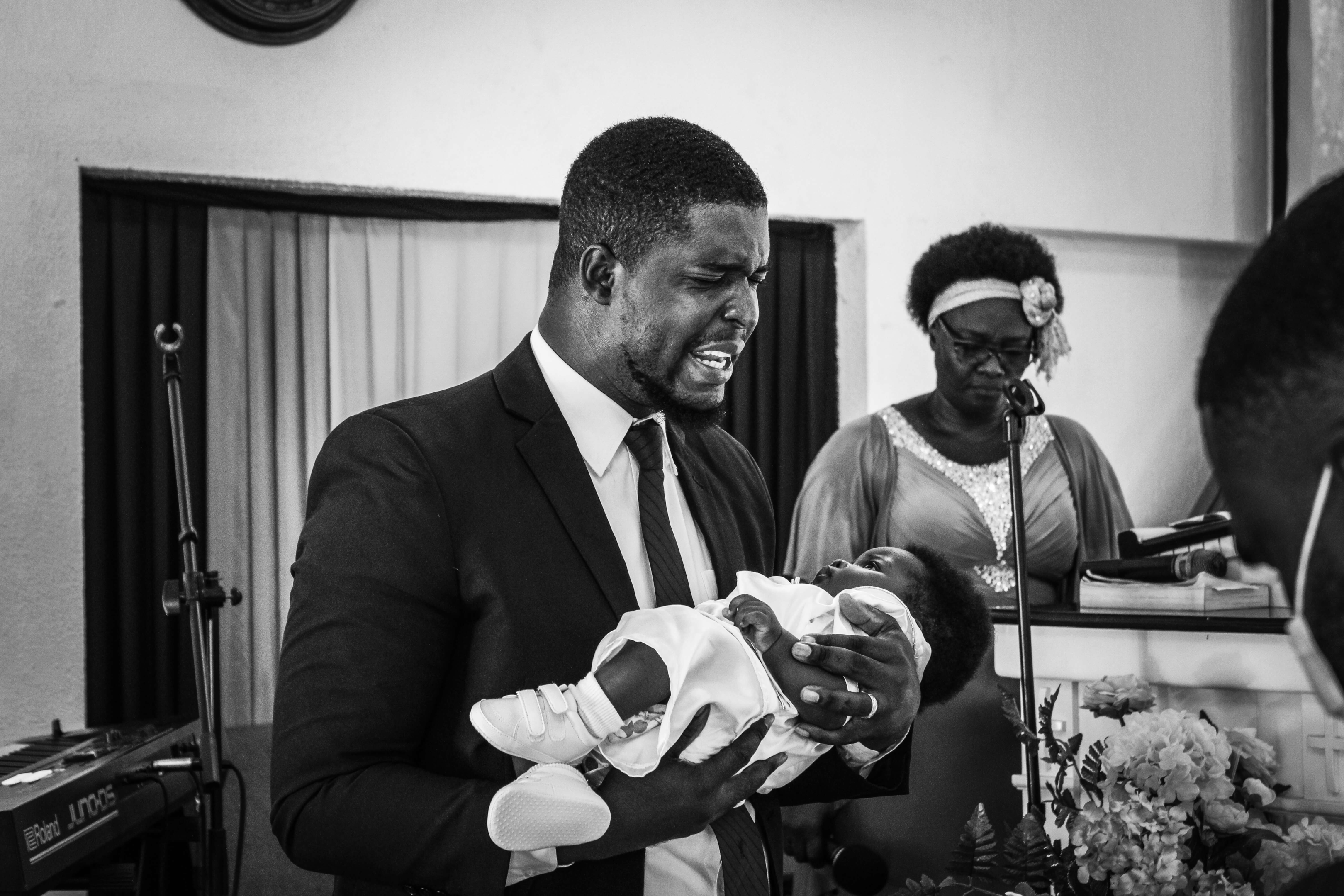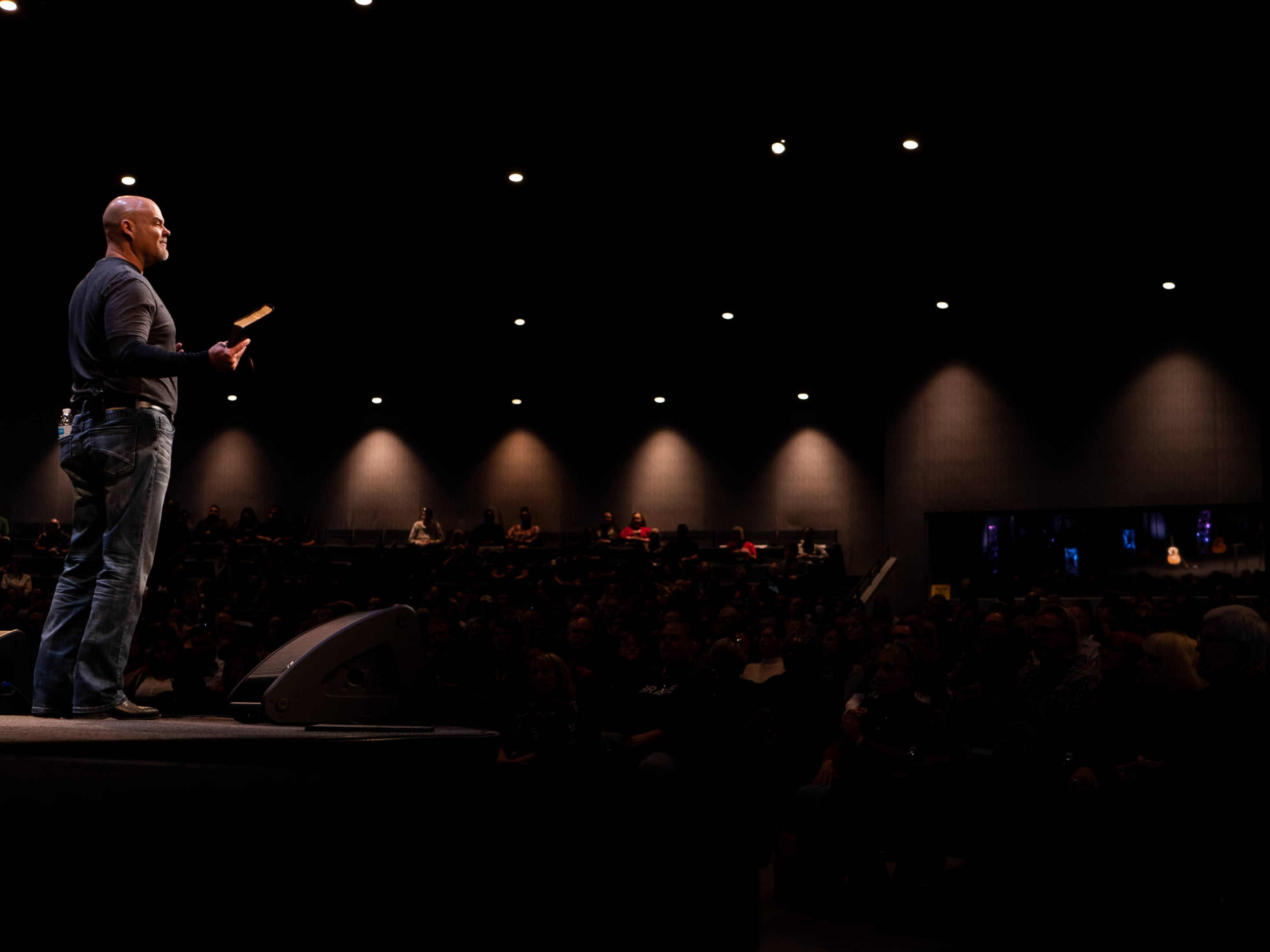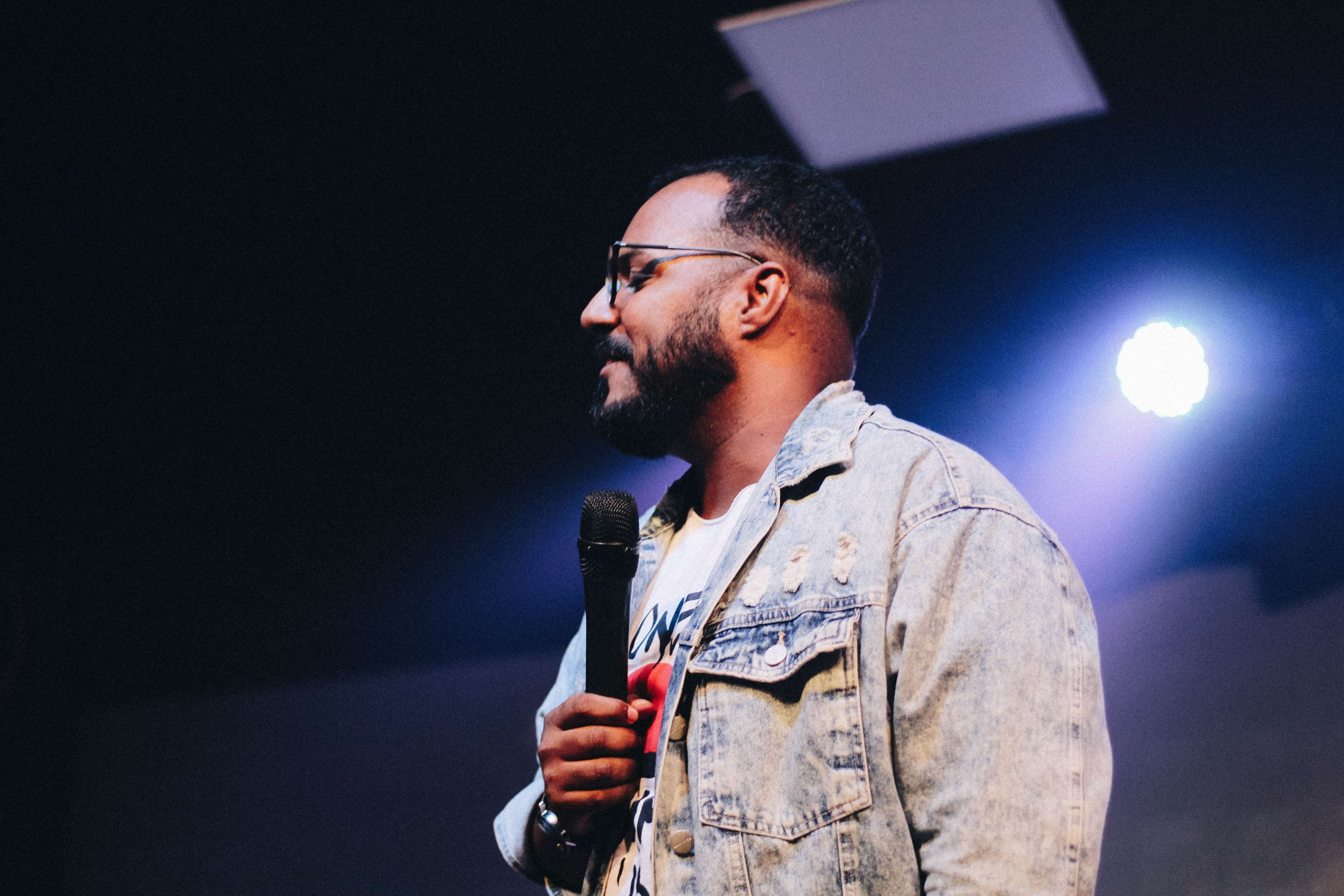As a church leader, one of your most important responsibilities is to find and hire the right people for your ministry team. This can be a daunting task, especially when it comes to hiring a senior pastor. That’s why we’ve created this comprehensive lead pastor job description template to help guide you through the process.
In this post, we’ll cover the key elements of a pastor job description, as well as provide tips on how to customize it for your church’s specific needs. Let’s get started.
BONUS: Wondering how much to pay a Senior Pastor? Use the Church Salary Calculator to find out!
Table of contents
- How to Craft A Senior Pastor Job Description
- Key Responsibilities
- Senior Pastor Qualifications
- Application Process
- Tailoring the Senior Pastor Job Description to Your Church
- Frequently Asked Questions about Hiring a Senior Pastor
- 1. How do we determine the appropriate salary for our pastor?
- 2. How can we ensure that our senior pastor job description attracts diverse candidates?
- 3. How long should the hiring process take?
- 4. What should we look for during the interview process?
- 5. How can we support our new pastor during the transition period?
- 6. Should You Invite A Potential Lead Pastor To Preach At Worship Services?
- Further Resources for Church Leadership
How to Craft A Senior Pastor Job Description
A senior pastor is the spiritual leader of a church. They are responsible for providing guidance and pastoral care to the congregation, as well as overseeing the overall direction and growth of the ministry. When crafting a job description for a lead pastor, it’s essential to be clear and concise about the expectations and responsibilities, while also showcasing the unique aspects of your local church and its mission.

Sample Introduction:
[Church Name] is a vibrant, diverse, and growing community of faith, committed to serving God and loving our neighbors. We are seeking a dedicated, passionate, and experienced Senior Pastor to join our team and lead our congregation in spiritual growth and service. The ideal candidate will possess strong leadership skills, excellent communication abilities, and a deep commitment to the ministry.
Key Responsibilities
The senior pastor’s primary responsibilities typically include preaching, teaching, pastoral care, and leadership. However, depending on the size and structure of your church, the role may also encompass administrative, outreach, and management duties. Be sure to list the specific responsibilities that are most relevant to your church.
Lead Pastor Sample Key Responsibilities:
Provide spiritual leadership, biblical guidance, and pastoral care to the congregation, fostering a culture of faith, love, and service.
Develop and deliver engaging, biblically-based weekly sermons during worship services, as well as on special occasions and events.
Plan and lead services, collaborating with the worship team, and ensuring that services are meaningful and spiritually enriching.
Provide pastoral care for members of the congregation, including visiting the sick, counseling those in need, and offering support during times of crisis.
Facilitate and encourage spiritual growth and discipleship through the development and implementation of small group ministries, Bible studies, and other educational programs.
Work with church leadership and staff to establish and execute a vision and strategic plan for the church’s growth and leadership development.
Engage and build relationships within the local community, participating in outreach and mission activities, and collaborating with other organizations to address community needs.
Oversee the administration and management of church operations, including budgeting, financial planning, and personnel management in the church office.
Mentor, supervise, and support church staff and volunteers, fostering a positive, collaborative work environment with robust leadership development.
Perform other pastoral duties, including weddings, funerals, baptisms, and dedications, as required.

Senior Pastor Qualifications
When listing the qualifications for a pastor, consider the educational requirements, ordination status, and years of experience. Additionally, highlight any unique qualifications or characteristics that are important for your church and its ministry.
Sample Qualifications:
A deep commitment to the Gospel of Jesus Christ.
- [Required Education Level] from an accredited institution, or an equivalent combination of education and experience.
- [Required Ordination Level] and good standing within a recognized Christian denomination.
A minimum of [X] years of pastoral experience in a similar role, with a proven track record of effective leadership, pastoral ministry, and community outreach.
Exceptional communication skills, with the ability to connect with a diverse congregation and adapt to various ministry contexts.
Strong leadership skills, with a passion for empowering others and fostering a collaborative, team-oriented environment.
A deep understanding of and commitment to the Bible, Christian theology, and the [specific denomination] tradition.
Demonstrated ability to manage multiple priorities, organize events, and work effectively under pressure.
A heart for pastoral care and the ability to provide compassionate and empathetic support to congregation members in times of need.
Application Process
Outline the application process for the senior pastor position, specifying the required documentation and submission guidelines. This will help potential candidates understand what is expected of them and streamline the process for your hiring team.

Sample Application Process:
To apply, please submit the following:
A cover letter expressing your interest in the position and outlining your qualifications.
Your current resume or CV, detailing your education, experience, and accomplishments.
A statement of faith, describing your personal faith journey and theological beliefs.
A link to or recording of a recent sermon or teaching on YouTube.
We thank all applicants for their interest; however, only those selected for an interview will be contacted.
Tailoring the Senior Pastor Job Description to Your Church
While this comprehensive senior pastor job description template provides a solid foundation, it’s essential to customize it to reflect your church’s unique needs and context. Consider the following tips to make the job description truly your own:
Highlight your church’s mission and values: Help candidates understand what sets your church body apart by sharing your mission statement, core values, Christian life, or specific ministry focuses. This can help attract senior pastors who align with your church’s vision and goals.
Include denomination-specific requirements: If your church belongs to a particular denomination, be sure to include any specific requirements or expectations, such as adherence to a statement of faith or participation in denominational events.
Mention any additional roles or expectations: Depending on the size and structure of your church, the senior pastor may be expected to take on additional roles or responsibilities, such as serving on a board or committee, acting as executive pastor, leading a specific ministry, or providing support for other church programs.
Frequently Asked Questions about Hiring a Senior Pastor

In this FAQ section, we’ll address some common questions and concerns that church leaders may have when it comes to hiring a senior pastor. This information can help you navigate the hiring process more effectively and make informed decisions for your church.
1. How do we determine the appropriate salary for our pastor?
Determining fair compensation for a pastor can be challenging, as there are several factors to consider. You need to weigh factors like experience, education, cost of living, and church size.
It’s essential to research comparable salaries for similar roles in your area and within your denomination. REACHRIGHT offers a comprehensive Pastor Salary Guide to help you establish fair pay for your senior pastor.
2. How can we ensure that our senior pastor job description attracts diverse candidates?
To create an impactful job description, avoid using gender-specific language and focus on the skills and qualifications necessary for the role if your church allows for it.
Emphasize your church’s commitment to diversity and inclusion if your church is egalitarian in its mission statement and values. Consider partnering with diverse organizations or networks to broaden your candidate pool.
3. How long should the hiring process take?
The hiring process for a senior pastor can vary greatly. It can depend on factors such as the number of applicants, the thoroughness of the screening process, and the availability of key decision-makers.
It’s essential to allow adequate time for prayerful discernment and careful consideration of each candidate. While there’s no set timeline, the process can typically take anywhere from a few months to over a year.
4. What should we look for during the interview process?
During the interview process, assess the candidate’s qualifications. Look at their experience, and theological beliefs, as well as their communication, leadership, and interpersonal skills.
Be sure to ask thoughtful interview questions that allow the candidate to share their perspectives on ministry, faith, and pastoral care. Additionally, consider involving congregation members in the process. This can provide valuable insights and help ensure a good fit for your church community.
5. How can we support our new pastor during the transition period?
Once you’ve hired a new pastor, it’s essential to provide them with the support and resources they need to succeed in their role. This may include
- Offering a formal orientation or onboarding process
- Assigning a mentor or peer to help them acclimate to your church and its culture
- Setting clear expectations for their first few months on the job.
Be sure to communicate regularly and offer ongoing feedback to ensure a smooth transition for both the senior pastor and the congregation.
6. Should You Invite A Potential Lead Pastor To Preach At Worship Services?
Inviting a potential lead pastor to preach at worship services can be an effective way to gauge their preaching style, communication skills, and theological approach, as well as how well they connect with your congregation. However, it’s important to consider the timing and context of the invitation.
It may be more appropriate to extend this invitation once the candidate has advanced through the initial stages of the hiring process and both parties have expressed mutual interest. Be sure to communicate openly with your congregation about the purpose of the guest sermon and encourage feedback from church members to assist in your decision-making process.
By addressing these FAQs and implementing the best practices outlined in this blog post, you can create a comprehensive and effective pastor job description that will help you find the right candidate for your church. Remember that prayer and discernment are crucial components of the hiring process, and trust that God will guide you in your search for the ideal pastoral leader.
Further Resources for Church Leadership
As you continue to build your ministry team, be sure to check out the following resources from ReachRight Studios:
Church Compensation: Understanding and Establishing Fair Pay
30 Pastor Interview Questions to Help You Find the Right Fit
Church Leadership: Building Effective Teams and Fostering Growth
Crafting a comprehensive and effective pastor job description is crucial for attracting the right candidates to your church. By using this template and customizing it to fit your unique context, you’ll be well on your way to finding the pastor who can best serve and lead your congregation.





Comments 1
Greetings Friend,
Thank you for the information you culminated and have shared about the Pastoral job requirements and the search process. Do you offer any recommendations on where to search for a senior/lead pastor?
Thank you in advance for your help.
Bless you,
A fellow servant in Christ,
Christine Jacobsen